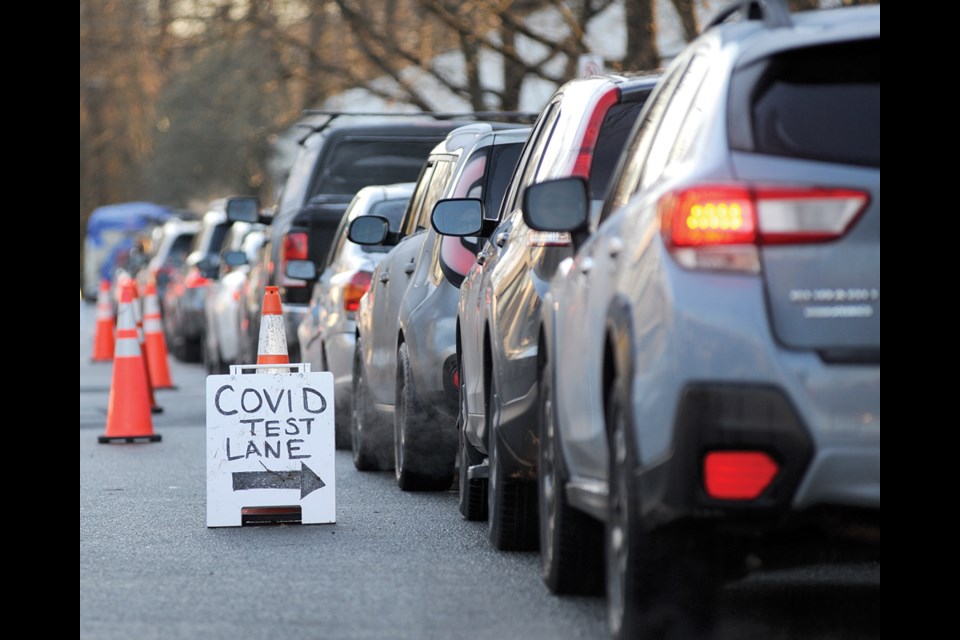The North Shore is turning the corner on the Omicron COVID surge, data from B.C.’s Centre for Disease Control suggests.
The latest statistics suggest the number of new infections in North Vancouver and West Vancouver are now declining.
While the official numbers are only a small subset of actual infections – most of which are not reported or included in official statistics – they still provide important information about overall trends, Dr. Bonnie Henry, the province’s health officer, said on Friday.
For the week ending Jan. 13, the North Shore recorded 409 new infections as measured by PCR tests – less than half the number of cases reported 10 days ago, when the North Shore hit a record of 904 confirmed cases. Of those, 314 cass were in North Vancouver and 95 were in West Vancouver.
The positivity rate among those receiving the PCR test on the North Shore has also fallen. At the end of December and very beginning of January, positivity rates on the North Shore topped over 60 daily cases per 100,000 people.The most recent positivity rates have hovered around 40 daily cases per 100,000.
Henry said on Friday that the actual numbers of COVID cases are likely three or four times the official statistics. Most people with symptoms at the local COVID testing site on Lloyd Avenue have been handed rapid tests to take at home. Health authorities have also stated it is not necessary for everyone to get tested.
But Henry said the information still shows an important trend – that the Omicron surge has most likely already peaked, particularly in the Lower Mainland.
Sewage plant monitoring shows same infection trend
The same trend has been seen in monitoring of wastewater concentrations of the virus from sewage plants around the Lower Mainland, showing a peak in the first days of January and decreasing since then, said Henry. Information presented Friday showed that same pattern for the Lions Gate treatment plant on the North Shore.
“At least in terms of transmission in the community, we've reached the peak, and we're starting on that downward trajectory,” said Henry.
She added BC is following a very similar pattern to what has been seen in other areas, including South Africa, the UK, Florida and Denmark.
Hospitalizations yet to peak
Hospitalizations are still increasing, however, said Henry, and are expected to peak sometime in the next week between Jan. 15 and 22.
COVID symptoms have prompted many people in Lower Mainland to visit emergency departments, said Henry. Compared to previous waves of the virus, however, fewer people are ending up being admitted to hospital. Of those who are, most people with Omicron are getting less severely ill than in previous waves and are staying in hospital for shorter periods of time, said Henry.
About half of the people in hospital with COVID-19 came to hospital for other reasons and only learned they were infected when they tested positive, Henry said Friday.
There were 20 COVID-19 patients at Lions Gate Hospital on Friday, according to Vancouver Coastal Health, including two patients in the ICU.
Henry warned despite the milder illness seen in Omicron patients, the hospitalizations are also peaking at a time when many health care staff are absent because of illness themselves, putting a big strain on the health care system.


